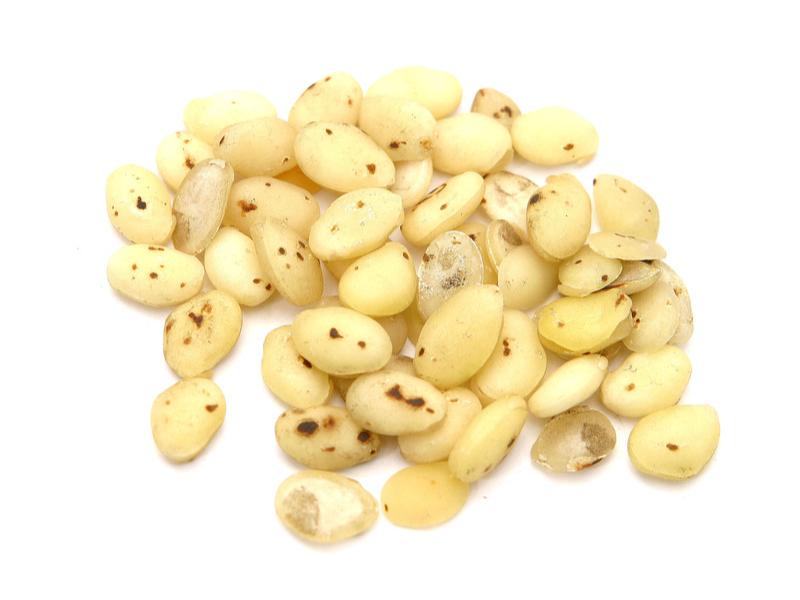Search in medicinals
Lablab Semen Album
Lablab [bean]
白扁豆 〔白扁豆〕 bái biǎn dòu

Alternate English names: hyacinth bean
Alternate Chinese names: 南扁豆 nán biǎn dòu; 扁豆 biǎn dòu; 沿篱豆 yán lí dòu; 峨眉豆 é méi dòu; 南豆 nán dòu; 藤豆 téng dòu; 小刀豆 xiǎo dāo dòu
Kingdom: Plant
Origin in PRC Pharmacopoeia: Dolichos lablab L. (PRC Pharmacopoeia)
Origin in unofficial sources: Dolichos lablab L.*; Lablab vulgaris Savi [= Dolichos lablab L.]
Use: Medicinal and alimentary
Category: Supplementing agents / Qì-supplementing agents
Properties: Sweet; slightly warm.
Channel entry: Spleen and stomach channels.
Actions and indications:
- Fortifies the spleen and transforms dampness: Spleen qì vacuity with exuberant dampness manifesting in reduced eating, sloppy stool, and/or white vaginal discharge.
- Disperses summerheat: Summerheat-damp with
vomiting and diarrhea . - Additional uses: Finally, bái biǎn dòu may be used for
vomiting and retching due to food poisoning. The juice obtained from the fresh bean is used to resolve toxin and relieve vomiting.
Dosage and method: Oral: 10–30g, taken as a decoction. The raw form is preferred to disperse summerheat and resolve toxin, while the stir-fried form is used to fortify the spleen and check diarrhea.
Quality: Plump white beans are the best.
Production area: Most parts of China, especially Húnán, ānhuī, Hénán, Zhèjiāng; also produced in Japan.
Back to search result Previous Next